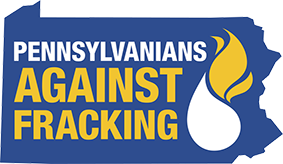Finding funding is a crucial part of our organizing work. It is difficult for all environment and environmental justice organizations, but it is especially difficult for grassroots organizations who operate with volunteers and a bare bones organizational structure. Your PAF coalition will strive to identify potential sources for funding. Your input is valued, so please advise us of any additions to the funders list, as well as any problems or restrictions you encounter that would be useful for other coalition members to know.
Below are some potential funders along with short summaries and links. Please visit the funders sites for complete information.
Before applying, here are some tips on applying for foundation grants:
- You may need to find a 501(c)3 nonprofit to sponsor you: Many foundations only give grants to 501(c)3 nonprofit organizations. If you want to go that route, there are many existing nonprofits willing to offer fiscal sponsorship.
- For more information contact Pennsylvanians Against Fracking through our contact us page.
- Write your grant with the foundation’s mission in mind.
Here are some useful resources where you can find advice and guidelines for how to find foundations that may support your work:
- Some groups aren’t sure what type of organization they should incorporate as. See Alliance for Justice’s Types of Organizations rundown to get a handle on all the options
- Once you decide what type of organization you want to be, check out Alliance for Justice’s page on how to establish your organization.
- You can also contact Alliance for Justice with questions using this form.
Ø Mountain Watershed Association Direct Support Fund (link)
The Direct Support Fund provides small disbursements to grassroots groups and advocates working toward social change on shale gas issues with annual budgets not exceeding $10,000. The fund targets projects focused on developing new community leadership, collective strategizing or problem solving, community outreach, or those that support direct action, as well as activities pursued in collaboration with other activists, groups, or communities. Travel and/or conference expenses for events that increase networking, strategizing, and communication among activists or grassroots groups will also be considered.
Ø Center for Health, Environment & Justice (link)
CHEJ’s Small Grants Program helps grassroots, community organizing groups build their capacity. The program is designed to especially reach people from low-wealth communities and communities of color who are impacted by environmental harms. Grant activities can include board development, membership outreach, and fundraising efforts. Project activities could also include meetings to develop an organizing strategic plan, training events, educational activities which are directly connected to your strategic plan, or membership recruitment.
Ø Grantmakers of Western Pennsylvania (link)
Although some access is restricted to its members, there is information under “Non-Profits and Community” under the Resources tab.
Ø PSU-Extension workshops on grantwriting (link)
Assists grant seekers in the grant writing and fund-raising competitive environment. The state: “Organization and preparation matter. Obtaining grants is a process. Getting the Most From Your Grant Writing Efforts will break that process down into workable strategies to ensure a more successful outcome.”
Ø Three Rivers Community Foundation Grants (link)
Three Rivers Community Foundation offers annual grants that usually range from $500 to no more than $4,000. Letter of inquiry instructions are released in December, and the letters of inquiry are due the following January. If invited to submit a full proposal, the deadline is in late March or early April. Notification of grantees is in mid-June, and grant awards are released in late June. For more details on the TRCF grantmaking process, see the TRCF grantmaking guidelines.
Ø The Heinz Endowments (link)
The Heinz foundation funds organizations classified by the IRS as tax-exempt under section 501(c)(3) and as public charities under section 509(a) of the Internal Revenue Code in southwestern Pennsylvania. Individuals and for-profit organizations are not eligible for funding. Application submissions are considered on Mar. 1 and Aug. 1. Prospective applicants should apply through the Strategic Areas creativity, learning, and sustainability, and are asked to review carefully the goals and strategies for the Strategic Area from which they anticipate seeking support.
Ø Environmental Grantmakers Association (EGA) (link)
A membership organization, but some information for grant seekers is provided.
Ø The Foundation Center
Offers a fee-based grant search tool, but they also make available some free tools. For example, their 990 finder, allows you to research foundations.
Ø Philanthropy News Digest’s (link)
Publishes Request for Proposals (RFP) of organizations offering grants, sorted by the type of issues addressed by grant applicants. Examples are Environment, Health, and Community Improvement/ Development.
Ø Philanthropy Network of Greater Philadelphia (formerly Delaware Valley Grantmakers) (link)
While the Network does not make grants, it does provide technical assistance to nonprofits
Ø Chronicle of Philanthropy (link)
A national publication keeping those involved in the non-profit world informed of the latest developments in funding and other trends. It’s Resources link offers lists of grants, fundraising ideas and techniques, statistics, reports on tax and court rulings, summaries of books, and a calendar of events.


